Best Unlimited Internet Plans With No Data Caps
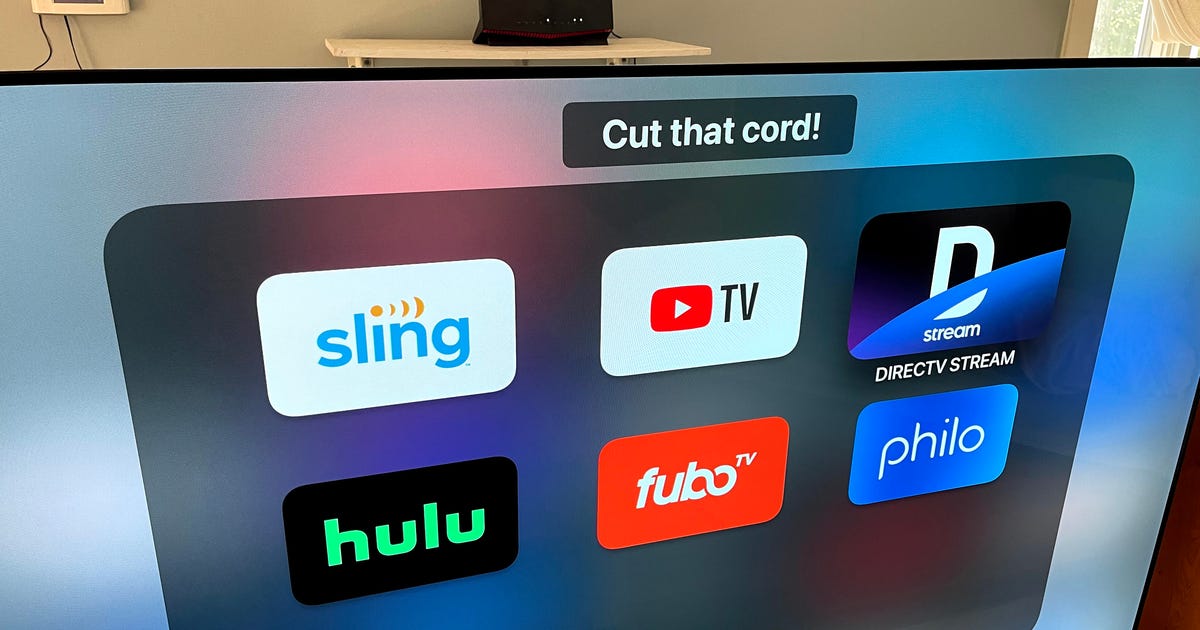
Whether you’re an avid movie streamer, work from home or even enjoy playing online video games, having a solid internet plan is a must. Technology rules our lives, and there’s nothing worse than being throttled on a capped data plan. Anyone who owns a smartphone, laptop or tablet knows the hassle of running out of data. While 10GB of data can sound like a lot when buying your data plan, if you plan to stream in HD or 4K, you can easily go through almost 5GB of data in a couple of hours. If your data use consistently exceeds your monthly data plan, it’s time to look into unlimited internet plans. Many of the best internet providers come with no data cap, though not all.
Cable providers like Cox, Mediacom and Xfinity, among others, may have monthly data caps. DSL internet is not always free of caps either, and other connection types such as satellite internet and fixed wireless may come with much lower monthly data allowances.
I’d recommend passing on a home internet provider that comes with a data cap altogether, if possible. These are some of the best internet providers that offer unlimited data.
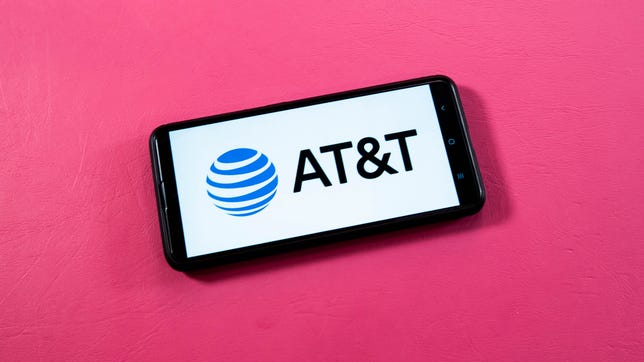
Sarah Tew/CNET
Price range
$55 – $180 per month
Speed range
300 – 5,000Mbps
Highlights
Unlimited data, no contracts, equipment included
Special offers
$100 to $150 gift card if you sign up online
AT&T is our pick for best fiber internet provider overall thanks to its high availability, competitive pricing, fast speeds and unlimited data. All AT&T Fiber plans come with no data cap, which means you can stream, game and browse social media to your heart’s content without fear of incurring overage fees. Starting prices for AT&T Fiber plans range from $55 per month for up to 300Mbps to $80 per month for gigabit service.
Not all AT&T internet plans are free of data caps, however. AT&T Internet, a DSL-based service, and AT&T Fixed Wireless plans come with a data cap, and potentially hefty fees for going over. AT&T’s DSL service comes with a 1TB per month cap while fixed wireless caps your monthly data at 350GB.
Read our AT&T internet review.
AT&T Home Internet
You’re receiving price alerts for AT&T Home Internet
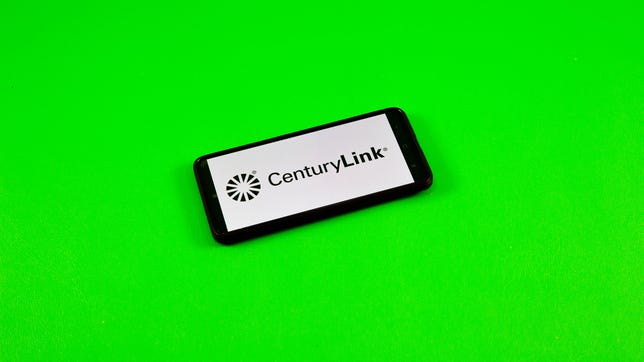
Sarah Tew/CNET
Price range
$49 – $65 per month
Speed range
200 – 940Mbps
Connection
Fiber
Highlights
Unlimited data, no contracts, equipment included with gigabit tier
CenturyLink internet plans previously came with a monthly data cap of 1TB. There was no fee or speed throttling for going over, but frequent or excessive overages could violate the terms of service.
Now CenturyLink customers don’t have to worry about data caps at all as the provider recently lifted the soft data cap on all DSL and fiber plans. The DSL service, which makes up the greatest portion of the provider’s network, starts at $50 per month for the fastest speeds available, up to 140Mbps.
CenturyLink Fiber recently rebranded to Quantum Fiber but, other than the name change and now offering unlimited data, service is essentially the same. Customers have two plan options with symmetrical upload and download speeds: 200Mbps starting at $50 per month or gig service starting at a monthly rate of $65.
Read our CenturyLink internet review.
CenturyLink
You’re receiving price alerts for CenturyLink

Sarah Tew/CNET
Unlike AT&T, Frontier offers unlimited data with both its DSL and fiber-optic internet services. Equipment costs are also included in the monthly cost and no contracts are required, making Frontier one of the more straightforward providers when it comes to pricing.
Unlimited data adds to the value of any internet plan, but some Frontier plans are a better value than others. Frontier’s DSL service starts at $55 per month (remember that includes your equipment) but maxes out at top download speeds of 115Mbps.
You’ll find more value in Frontier Fiber plans. Frontier Fiber 500 starts at $45 per month and is among our top picks for the best internet deals. Other Frontier Fiber plans include gig service starting at $75 per month and the provider’s new 2 gig plan starting at $150 per month.
Read our Frontier home internet review.
Frontier Communications
You’re receiving price alerts for Frontier Communications

Sarah Tew/CNET
Kinetic is another service that comes with unlimited data regardless of whether it’s DSL or fiber optic. Speeds and pricing can and do vary by location with Kinetic, more than just about any major provider it seems, but unlimited data is one standard customers across all markets can enjoy.
Kinetic service areas largely span rural and suburban areas, making the provider a great option for unlimited internet in rural areas. On top of that, Kinetic offers faster DSL speeds than many competing providers with speeds of 100Mbps or higher available to more than 64% of its customer base.
Read our Kinetic by Windstream review.
Kinetic Internet
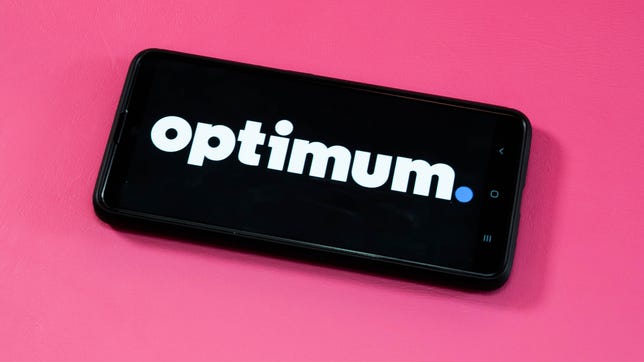
Sarah Tew/CNET
Price range
$40 – $80 per month
Speed range
300 – 940Mbps
Connection
Cable, fiber
Highlights
Unlimited data, no contracts
Optimum includes unlimited data with all plans. They’re the first cable internet providers to make the list, mostly just because I ordered the providers alphabetically and Cox and Mediacom both have data caps.
Along with the advantage of unlimited data, Optimum plans are priced lower than most considering the speeds you get. Pricing just went up a bit in most markets, and the company voluntarily opted to lower upload speeds, just because, but you can still find good value and unlimited data in Optimum internet plans.
Read our Optimum review.
Optimum Internet
You’re receiving price alerts for Optimum Internet
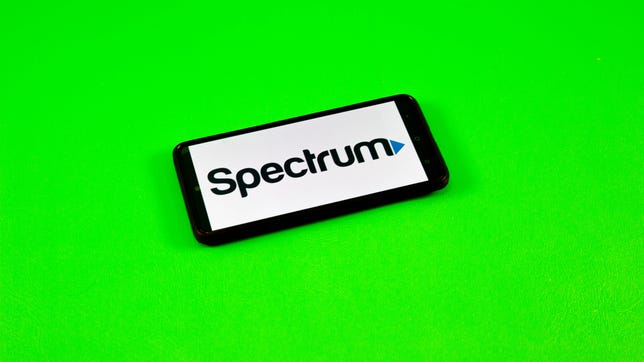
Sarah Tew/CNET
Price range
$50 – $90 per month
Speed range
300 – 940Mbps
Highlights
Simple pricing, unlimited data, no contracts, modem included, free access to nationwide Wi-Fi hotspots
Special offers
Bundle discounts, free Peacock Premium for up to 12 months
Starting prices for Spectrum internet are a little higher than most, but all plans come with fast speeds, no contracts and, you guessed it, unlimited data. That, plus a modest equipment fee of just $5 per month — and that’s if you choose to rent a router — puts Spectrum right up there with Frontier when it comes to straightforward pricing.
Spectrum’s cheapest internet plan starts at $50 per month, which is on the high side compared to other providers, but the speeds you get, up to 200Mbps, are worth the cost. The next tier, Spectrum Internet Ultra, is an even better deal at $70 per month for speeds up to 400Mbps, or you can upgrade to gig service for an added $20 per month.
Read our Spectrum review.
Spectrum Internet
You’re receiving price alerts for Spectrum Internet
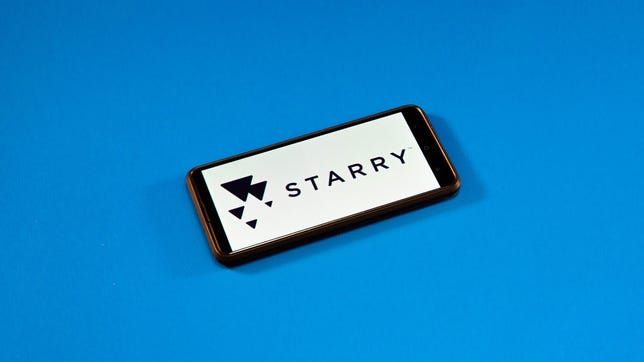
Sarah Tew/CNET
In my review of Starry Internet, I was impressed by the provider’s ability to offer affordable, high-speed service over a fixed wireless network. The provider flagship plan offers up to 200Mbps starting at $50 per month, but gig service is available in select areas starting at $80 per month.
Regardless of the Starry plan you choose, it’s going to come with unlimited data as well as no contract requirements or additional equipment fees. Considering the speeds, pricing and extra perks like unlimited data and free equipment, Starry is worth checking out if you happen to live in a city where service is available.
Read our Starry Internet review.

Sarah Tew/CNET
Price range
$50 per month ($30 for eligible T-Mobile Magenta Max customers)
Speed range
33 – 182Mbps
Highlights
Unlimited data, equipment included, no contracts, no additional fees
Special offers
Price Lock guarantee, 15-day Test Drive, free Paramount Plus for 12 months, $10 off per month on Philo TV for a year
5G may be the future of home internet, at least in underserved areas where cable and fiber internet is either unavailable or too expensive. Enter T-Mobile. The 5G provider is available to more than 30 million homes, a third of which are in rural or suburban areas.
T-Mobile 5G home internet customers will only have one plan option — speeds of 35-115Mbps starting at $50 per month — but the plan does come with unlimited data, no contracts and no additional equipment fees. As 5G technology continues to emerge, we may see better plans with faster speeds and greater availability from T-Mobile and other providers, but for now, T-Mobile is likely your best bet for 5G home internet with unlimited data.
Read our T-Mobile 5G home internet review.
T-Mobile

Sarah Tew/CNET
Price range
$50 – $120 per month
Speed range
300 – 2,000Mbps
Connection
Fiber
Highlights
Unlimited data, no contracts, free equipment with gig service
Verizon Fios ranks right up there with AT&T Fiber when it comes to speeds, pricing and customer satisfaction. Another thing going for the provider: unlimited data. Each Verizon Fios plan — 300Mbps starting at $40 per month, 500Mbps starting at $65 per month and gig service starting at $90 per month — comes with unlimited data. A $15 equipment fee can add a sizable chunk to your bill, but you can skip the fee by using your own equipment or opting for the gigabit plan, which includes a router and Wi-Fi extender for free.
Verizon’s DSL service also comes with no data cap, but at $75 per month for sub-broadband speeds of 1-15Mbps, the service is tough to recommend. If given the option of Verizon DSL or another provider, you’re probably going to get a better value with the latter, even if that provider comes with a data cap.
Read our Verizon Fios review.
Verizon Fios
You’re receiving price alerts for Verizon Fios

Sarah Tew/CNET
WideOpenWest, or WOW, is the last cable provider on our list, and while it’s not that I’m saving the best for last (again, it’s just alphabetical), WOW is certainly in the running. WOW plans start at just $25 per month for speeds up to 100Mbps, but other plans include 200Mbps, 500Mbps and gigabit service. All plans come at a starting price of less than $65 per month, and all plans come with unlimited data.
WOW is one of the lesser-known, lesser-available providers compared to big providers like Cox, Mediacom, Spectrum and Xfinity, but the provider is making a name for itself with highly competitive pricing and favorable service terms, like unlimited data.
Read our WOW review.
WOW! Internet
You’re receiving price alerts for WOW! Internet

Sarah Tew/CNET
The newest provider featured on our list of top ISPs with no data cap is Ziply Fiber, which began offering service to the Pacific Northwest in early 2020 after relieving Frontier of DSL and fiber-optic networks in the region. Ziply Fiber offers three fiber plans ranging from $20 per month for speeds up to 50Mbps to gig service starting at $60 per month. DSL service is also available in select areas starting at $40 per month, but speeds vary based on location. Customers can enjoy unlimited data with either service.
With only a little over a year or so under its belt, Ziply Fiber is off to a great start. The speeds, pricing and service terms (like no data caps) are right on par with, or in some cases better than, many of the leading DSL and fiber-optic providers. We’ll keep an eye on this one, and if you’re in the Pacific Northwest, I’d definitely recommend checking them out.
Read our Ziply Fiber review.
Honorable mentions with (sort of) unlimited data
These providers are not truly unlimited, but either offer unlimited data options or won’t penalize you too harshly for going over your limit. While no data cap is ideal, these providers are a close second.
HughesNet: HughesNet has “no hard data caps.” What does that mean, exactly? While all HughesNet plans come with speeds up to 25Mbps, the different plan levels vary by the amount of data you get, somewhere between 10 and 50GB. If and once you exceed that limit, HughesNet may drastically lower your speeds for the remainder of your billing cycle to free bandwidth for folks who haven’t yet gone over theirs. There’s no overage fee, though, and you can add more data throughout the month if the slowed speeds are a nuisance.
Rise Broadband: Rise Broadband is a fixed wireless provider popular in many rural areas due to its ability to deliver internet service without the need of a dedicated phone, cable or fiber wire. It’s also a popular choice for unlimited internet, but only if you opt for (and pay a little extra for) an unlimited plan. Rise Broadband plans range from 25 to 50Mbps starting at $35 to $55 per month but come with a data cap of 250GB. If you want unlimited data, the same plans will cost you around $10 more per month.
Xfinity: Xfinity is the largest internet provider to not include unlimited data with its plans. That’s not to say unlimited data isn’t available with Xfinity, but you’ll have to pay a little extra if you want it. Unlimited data is available for an additional $11 per month for xFi gateway customers or $30 per month for customers who use their own gateway device. Considering Xfinity plans normally come with a generous 1.2TB of data per month (way more than most will come close to using), it may be more economical to just watch your monthly data usage and avoid going over.
Pros and cons of internet plans with no data caps
For the most part, the reasons to choose an unlimited internet provider or plan far outweigh the reasons not to, but there may be some instances where accepting a data cap makes sense.
Pros
- No overage fees or other penalties for exceeding your limit
- No having to monitor your data usage throughout the month
- Unlimited data is ideal for multiple devices or those who use large amounts of data for working from home or learning online
Cons
- Monthly pricing may be higher
- It may not be worth the upgrade
Some providers charge a premium for unlimited data, which could add $10 or more to your monthly bill. Others may only offer unlimited data with select service types or plans and, while the unlimited data may be enticing, it’s possible that upgrading to a pricier plan could have you paying for more than you need.
Those instances are fairly uncommon, however, which means internet plans with no data cap are typically the better value. When considering internet providers, I’d always check out the ones with unlimited data first, like the ones featured below.
Internet provider data cap FAQs
What uses the most internet data?
Streaming video, especially if it’s in HD or 4K. According to Netflix, streaming in standard definition can consume 1GB per hour, HD can eat up 3GB per hour and 4K can use as much as 7GB per hour. So let’s say you binge all 485 minutes of Squid Game in HD this month. That’ll add up to around 24GB of data.
Why do internet providers have data caps?
There’s only so much bandwidth available, so providers may have to enforce data caps to keep everyone happy and connected. This is especially true with satellite internet technology, which has limited bandwidth. Consequently, you’ll find the lowest monthly data allowances, by far, with satellite internet service. In the case of DSL and cable internet providers, which often come with a data cap of 1TB, if any, the providers largely just want to discourage excessive usage. If they were planning to make extra money in the form of overage fees, they’d lower the data cap from 1TB, which is typically far more than the average household will use.
If you have a 1TB data cap, the good news is that’s probably going to be more than enough for your needs. Prior to the COVID-19 pandemic, the average household used somewhere around 200 to 300GB per month on roughly 10 connected devices, according to a recent Statista study. Even as the pandemic prompted millions of people to work, learn and seek their entertainment from home, average monthly data usage spiked in March of 2020 to around 400GB, which is well below 1TB.
How can I use less internet data?
There are a number of ways to reduce your internet data use, including streaming in standard definition as opposed to HD, downloading music or TV shows instead of streaming them repeatedly, and disconnecting unused devices from your Wi-Fi network.
Source: CNET













